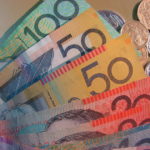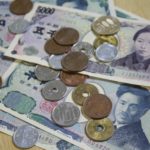 Gold rose in the late European and early U.S. trading sessions after St. Louis Federal Reserve President James Bullard said the Fed should not “hurry” to scale back its monthly purchases as inflation is well below the targeted 2%. A decline in new orders of non-military capital goods other than aircraft also pressured the greenback and allowed dollar-priced commodities to regain positions.
Gold rose in the late European and early U.S. trading sessions after St. Louis Federal Reserve President James Bullard said the Fed should not “hurry” to scale back its monthly purchases as inflation is well below the targeted 2%. A decline in new orders of non-military capital goods other than aircraft also pressured the greenback and allowed dollar-priced commodities to regain positions.
On the Comex division of the New York Mercantile Exchange, gold futures for settlement in December traded at $1 318.10 per troy ounce at 15:57 GMT, up 0.37% on the day. Prices held in range between days high and low of $1 322.10 and $1 311.00 per ounce respectively.
Gold edged higher on Monday after St. Louis Fed President James Bullard, one of Feds stimulus supporters, told CNBC television the central bank shouldnt rush tapering its monthly bond purchases because of low inflation, which has been running well below policy makers 2% official target.
“For me, you dont have to be in a hurry because of low inflation,” Bullard said.
Fed officials seemed less optimistic about economic growth last Wednesday, and were especially worried about the recovery of the housing and labor markets, pledging to maintain the current $85-billion-per-month bond purchasing pace until “the outlook for the labor market has improved substantially.”
However, policy makers noted there were signs of “underlying strength” in the economy and kept a tone which left the 16-day government shutdown in October and the possibility for a U.S. debt default on the sidelines, shifting focus to upcoming key data points.
Bullard said the 16-day government shutdown would not do lasting harm to the economy, but he acknowledged the political wrangling did hurt confidence. The Fed however shouldnt wait for a permanent budget deal before taking action, he added.
Bullards comments came after Federal Reserve Bank of Dallas President Richard Fisher, one of the central bank’s quantitative easing program opponents, said today in Sydney that the Federal Reserve should put an end to its bond purchases as soon as possible. Fisher said he wouldn’t rule out backing a deceleration of the program by March, depending on the economic conditions.
“I would say in terms of my own support, that I wouldn’t rule out my supporting doing something before March. It’s really a question of what the circumstances are at the time and how the financial markets, and most importantly, the real economy is doing, ” Fisher said.
The U.S. dollar index, which measures the greenback’s strength against a basket of six major peers, traded at 80.66 at 15:57 GMT, down 0.18% on the day. The December contract rose to a session high of 81.01, the strongest reading since September 17, while day’s low stood at 80.62. The U.S. currency gauge rose for a sixth straight day on Friday and settled the week 1.9% higher but Mondays retreat allowed dollar-denominated commodities to regain some strength.
Meanwhile, also supporting the precious metal, the Commerce Department reported that U.S. factory orders fell by 0.1% in August after contracting by 2.4% in July, defying projections for a surge by 0.3%. In September, overall orders for factory goods rose by 1.7%, meeting analysts projections and outperforming the previous months decline.
The advance however was largely based on a surge in volatile aircraft orders. New orders for core capital goods, which strip out the volatile military and aircraft orders, plunged 1.3% in September, while shipments of core capital goods, which are a part of the Commerce Departments calculations of economic growth, fell by 0.2%.
Scott Brown, chief economist at Raymond James in St. Petersburg, Florida, said for CNBC: “It implies pretty lackluster growth. This could be further justification for the Fed to stay the course.”





